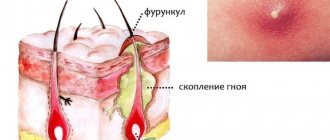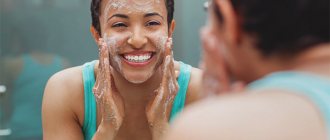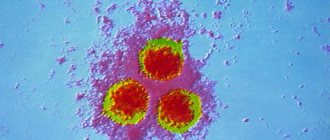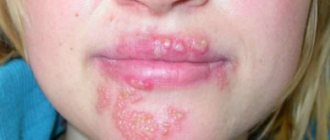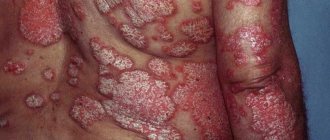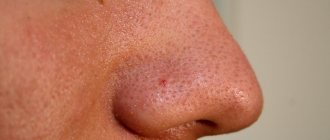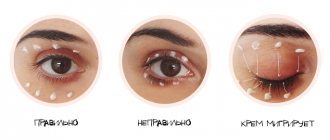Ringworm is an inflammation of the skin that appears under the influence of the herpes virus. It manifests itself in the form of a herpetiform rash, which, in addition to aesthetic discomfort, leads to the appearance of other unpleasant symptoms. During an exacerbation of this disease, it is important to take into account the rules of hygiene so as not to further aggravate the condition and, on the contrary, to speed up recovery. Let's consider what can lead to the appearance of such a disease and how to avoid infecting others while swimming in the sea.
Causes of herpes zoster
The first manifestation of the effect of the virus occurs in the form of chickenpox, which most people suffer from in childhood.
It is important to understand that dangerous microorganisms are unstable in the external environment and quickly die under the influence of sunlight, elevated temperatures and disinfectants.
After chickenpox is cured, the virus remains in the human body for life, while it is in a latent form and does not manifest itself in any way until a certain point.
It is activated at a time when natural immunity is weakened, and the body is influenced by the following factors:
- Infectious disease, severe hypothermia or vitamin deficiency;
- A period of serious hormonal changes, for example, the period of bearing a child;
- The presence of diabetes mellitus and exacerbation of chronic diseases can provoke the activity of the herpes virus;
- Sleep problems and frequent nervous diseases;
- Long-term use of immunosuppressants or hormonal drugs weakens the immune system and the body cannot suppress the virus.
How to treat ringworm?
In case of infection with this disease, early treatment will significantly speed up recovery, without any consequences for the body. The first step is to visit a doctor and undergo an examination. Only after studying the results can you, together with a specialist, choose the appropriate treatment.
The most commonly prescribed drugs are:
- Antiviral . Medicines in this group directly affect the virus itself. It is recommended to start taking it in the first stages after the onset of the disease, when the bubbles have just appeared. Such therapy will help the disease go away faster;
- Analgesics and painkillers . Quite often, with this disease, a person experiences pain and these are the remedies that help get rid of it. Nonsteroidal antiviral medications are most often prescribed;
- Antiviral ointments and creams . They are used for local treatment. It is recommended to apply them every 3 hours. Before going to bed, wash everything thoroughly and use an antiseptic. Finally, the skin is dried and disinfected; this can be done with brilliant green or any other similar product. Such manipulations will help prevent the addition of a secondary infection;
- It is strictly forbidden to use hormonal drugs for this disease , as they can only aggravate the problem. Also, you should not burn blisters with products that contain alcohol, iodine or fucorcin. It has been proven that they have no effect on the virus at all, but can lead to burns.
When the disease is detected in elderly people or in children, they are recommended to undergo a course of physical procedures, which are good immunostimulants. Typically, ultraviolet radiation or laser therapy is chosen. All this has a good bactericidal and analgesic effect.
To reduce discomfort, cool or wet compresses may be used. You can start using folk remedies only after receiving a doctor’s permission. Only in this case will such therapy promote recovery.
It is important to consider several rules when fighting herpes:
- It is important to have personal hygiene items. This is important in order not to infect other people with herpes;
- Do not use cosmetics such as gel or scrub to avoid increasing the risk of spreading the virus;
- It is strictly forbidden to scratch the blisters, as this may promote re-infection;
- Until the crusts form, you need to wear cotton underwear, since such fabric absorbs serous fluid that can leak from the wounds. This will help avoid secondary development of infection.
When a person develops such a disease, many are interested in whether it is possible to swim with lichen. Let's consider the risks of water procedures.
Is it possible to wash yourself if you have ringworm?
When a person develops such a disease, he immediately has a large number of questions about what to do so as not to worsen the situation. One of the most important problems, especially in the summer, is whether it is possible to wash with lichen and also, in general, to wet it. According to experts, you need to behave extremely carefully in the first days of the development of symptoms, but still you should not completely exclude contact with water.
Water treatments for shingles
Is it possible to wash if you have shingles? To answer this question, let’s take a closer look at this type of disease.
This lichen appears from a virus of the same type as, in simple terms, chickenpox. In the past, doctors strictly forbade taking baths for shingles because they were afraid it would spread the shingles.
Now, in the age of technology, doctors are not so categorical about this, allowing swimming, but under certain conditions:
- If your body temperature is normal.
- If you are not taking a bath, but a short shower.
- If you do not rub the area affected by the ringworm with a washcloth.
- It is also strictly forbidden to go to saunas, baths and swimming pools.
It is still allowed to use soap and various shower gels.
It is important to keep your own towel and not use others to prevent infection of other family members. Another rule is not to open the blisters, because the infection can spread further to other parts of the body, and another infection can get into the wounds and worsen the situation.
It should be noted that some doctors still do not allow water procedures, as this leads to an even greater spread of the already spreading infection, as well as new microbes that get on the wounds. Therefore, consult a doctor to be 100% sure that nothing threatens you and your health.
Water treatments for pityriasis
This type is considered chronic and has many other names: colored, sunny. It is similar to freckles, but is usually larger in scale and located in different places. This rash occurs when the skin is exposed to ultraviolet radiation in conjunction with other chronic diseases.
So, is it possible to swim with pityriasis? Some doctors say: no, taking any water procedures is strictly prohibited! Otherwise, the lichen will continue to spread throughout the body, as it moves very quickly from one part of the body to another. You can only lightly wipe the affected areas with an antibacterial agent. This will slightly slow down the process of further growth of the fungus. Of course, you will not be able to completely get rid of the disease in this way, but you will do everything in your power.
- Treat your bedding and clothing regularly.
- You should not self-medicate, because this can lead to bad consequences, proliferation of fungus, and worsening of the condition! Contact a specialist so that he can select quality treatment for you and prescribe medications and further instructions.
Forecast
Any actions, including water procedures, must be agreed with the attending physician. The decision largely depends on the individual characteristics of the patient and the course of the disease itself.
A highly qualified specialist will assess the situation and give all the necessary recommendations regarding treatment and the actual water procedures themselves. At the same time, it relies not only on the disease itself and its form. The instructions will vary depending on whether the patient is an adult or a child.
Water procedures for lichen Zhibera
Should you swim if you have lichen gibert?
With this type of disease, pink spots appear in a person, which is why it is sometimes called pityriasis rosea. The possible causative agent of this disease has not been discovered, and doctors do not know what causes it.
If you have lichen Zhiber, you can not only bathe, but you should, because in some cases this helps reduce itching and make the skin calmer, rather than irritated.
There are also some rules here:
- do not make the water too hot;
- do not rub the affected areas of the skin with a washcloth;
- do not visit the sauna, swimming pool, bathhouse, as in the case of shingles;
- use only those hygiene products prescribed by your doctor, because this may affect the condition of the disease;
- It’s better to take a shower rather than a bath;
- do not rub your skin with a towel, always use only your own towel;
- do not use various body scrubs.
So, if you are not sure that you can swim and that your lichen will not begin to multiply throughout your body, then you should definitely go to a professional to be completely sure that you are not in danger.
After all, lichen is one of those diseases that have bad consequences if you do not follow all the doctor’s instructions. Be healthy!
Almost the entire group of skin diseases, united by one concept - lichen, refers to contagious diseases. Fungi and viruses that cause them do not die in the aquatic environment. These diseases last for quite a long period. At this time, you need to be even more careful about body hygiene and regularly carry out water procedures. Therefore, many are concerned about the question of whether it is possible to wash with lichen.
Swimming in the sea and public waters
Most patients are also interested in such questions as the possibility of swimming in sea water and sunbathing. This largely depends on the characteristics of the patient’s body and the type of disease.
In the case of ringworm or shingles, it is better to avoid sunbathing and swimming in sea water. At least until the inflammatory process subsides. In the case of pityriasis rosea, a positive trend is noticed after such water procedures, but in some cases there is also a deterioration in the condition due to an individual reaction to sea water.
The effect of ultraviolet rays on the epithelium of patients suffering from tinea versicolor is also negative and leads to exacerbations. They are advised to temporarily refrain from going to the beach.
Before going to sea during treatment for lichen, you need to consult your doctor. Even in the absence of complications, swimming in the sea or fresh water may be prohibited, because the causative agent of the disease, after entering the water, can settle on the skin of another person. The causative agents of lichen do not die in sea water. The ability to visit the beach is determined by the type of illness:
- With shingles and ringworm, swimming in the sea or fresh water is prohibited until the inflammatory process disappears.
- During the treatment of rosacea, swimming in public waters can eliminate discomfort and improve well-being. But before you go to the beach, you should consult a doctor, because some patients experience irritation due to sea water.
- During treatment for tinea versicolor, you should avoid visiting the beach, because sunlight leads to complications of the disease.
How to properly care for the affected skin during treatment for lichen, and whether it is possible to swim at this time, you need to find out from your doctor. The solution to this issue depends on the type and severity of the disease, as well as on the individual characteristics of the body, the age of the patient and the presence of concomitant pathologies. Neglecting doctor's recommendations leads to serious complications.

